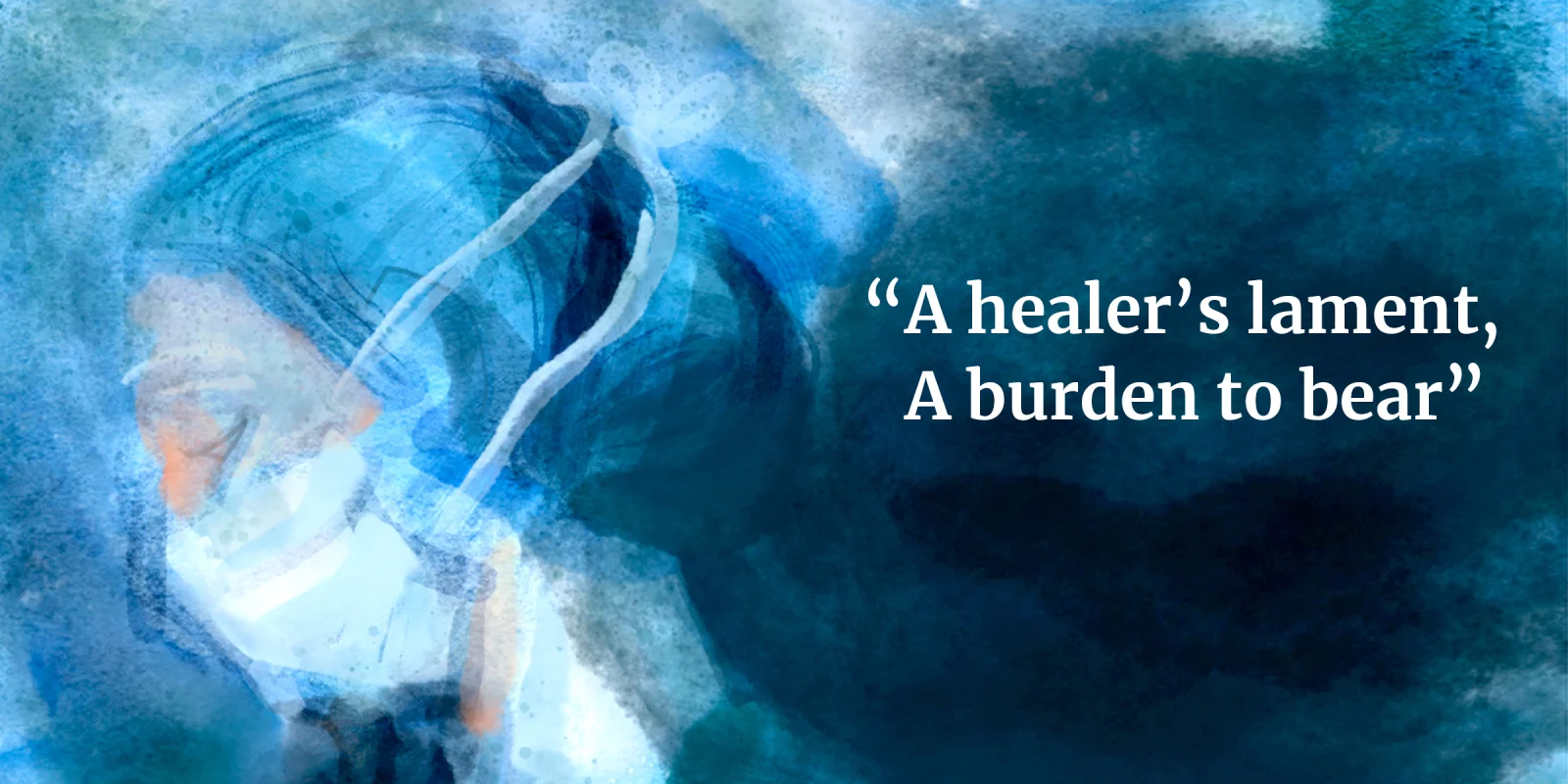This is part of the Medical Humanities series on Op-Med, which showcases creative work by Doximity members. Do you have a creative work related to your medical practice that you’d like to share? Send it to us here.
Eternal Peace
my lament –
a song of despair
for those ones
not saved,
wounds not healed.
see the suffering,
the pain, the grief
and do my best,
to bring relief
but sometimes, efforts are in vain
and the healer's heart,
filled with pain
to grieve in silence, and carry on
hoping to make a difference, before the dawn
the darkness lingers, a shadow of doubt
as I wonder what I could have done without
for we are the ones who heal and who care
a healer's lament, a burden to bear
they see the deaths, the ones that could have been prevented
if only they had more time, or more talent
the healer's lament, a song of despair
for all the lives, they couldn't repair
but I keep fighting, with all my might
hoping to save one,
the next one in sight
for they are the ones,
who heal, who care
a healer's lament, a burden to bear
in a place where pain and suffering cease
where I'm finally at eternal peace
i’ll look back on my life with pride
and all the love that I provided.
An Interview with the Poet
How would you describe the place of arts in relation to medicine?
Art can help to create a more welcoming atmosphere in a health care setting, which can contribute to a sense of well-being and can help to reduce stress and anxiety in patients and their families. It can be used to inspire new ideas and approaches in health care. Most importantly, art and medical humanities can be used as a tool to engage patients in their own care and to help them feel more connected to their treatment.
How does poetry relate to your medical practice?
As physicians in training, we often encounter death and heartbreaking illnesses that can be challenging to face in a world full of injustice. I use poetry and writing as a gateway to channel emotions in a manner that helps me cope with ill and dying patients in my practice.
Why did you choose poetry to express yourself? What interests you about it?
Poetry has always been a medium that I have connected with in my journey to the U.S. and throughout the challenges that medicine entails. Poems are a work of art that often tell us more about ourselves and our humanity. Individuals can read the same poem, but learn something different and unique.
What inspired “Eternal Peace”?
My inspiration ultimately stems from my patients, who are a constant source of love and admiration. In particular, one of my most recent terminally ill patients was an avid writer of poetry and let me read some of their work as I cared for them daily. This poem is dedicated to that patient.
How long have you been writing? What got you started?
I started writing poetry just over seven years ago after being immersed in the works of T.S. Eliot and e.e. cummings who, though they have different styles, have inspired me along this journey.
Olgert Bardhi was born and raised in Albania. He attended medical school at University of Florida College of Medicine and continued residency training in Internal Medicine at UT Southwestern Medical Center. He has written several opinion editorials and is featured in prominent newspapers. His passions include medical humanities, health care equity, and academic medicine.
Illustration by Jennifer Bogartz






